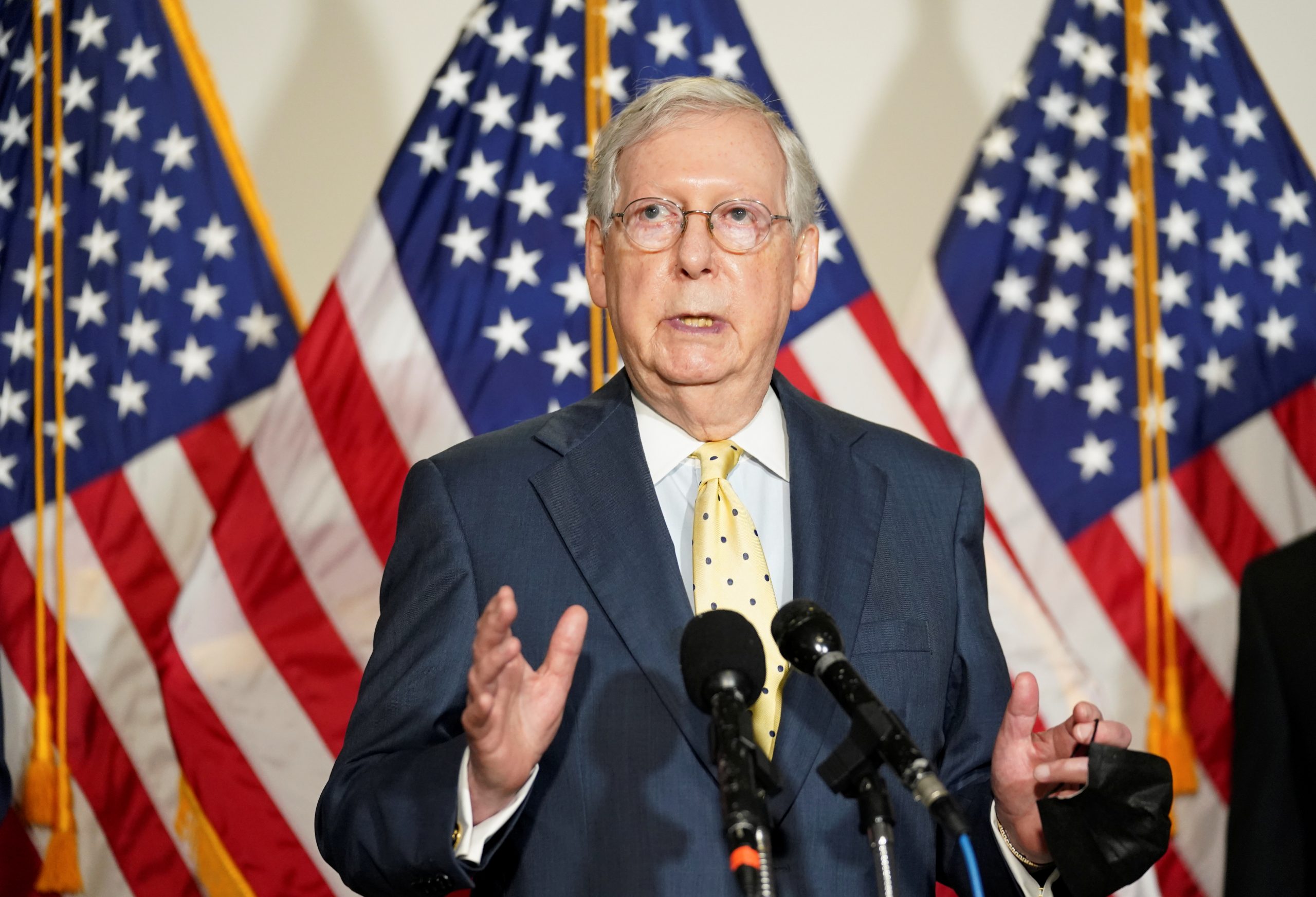Democrats and Republicans have been deadlocked for weeks on a coronavirus relief package and the two sides have been at the table again this week trying to hammer out a deal that will make it through the gears of bureaucracy.
House Democrats passed the $3 trillion HEROES bill in May but Senate Majority Leader Mitch McConnell (R-Ky.) declined to bring that bill onto the floor of the upper chamber.
During a press conference on Tuesday, McConnell was asked about the negotiations and whether the GOP’s so-called “skinny bill” includes another round of stimulus checks.
The Kentucky republican said that his bill does not contain another series of the checks that Americans were sent earlier this year. He added, “It does address an awful lot of things that we do agree on. And I don’t think the fact that those checks are not a part of this package — as others have said — is a good argument for not doing what we are laying on the floor, most of which is completely without controversy.”
Sen. Majority Leader Mitch McConnell says his COVID relief bill does not include another round of stimulus checks for Americans. pic.twitter.com/Bt4YHdCuOn
— The Recount (@therecount) October 20, 2020
McConnell announced over the weekend that the Senate will vote on a $300 billion skinny bill on Wednesday day. But Democrats didn’t seem happy with that small of a figure and the White House has previously proposed a $1.8 trillion bill.
The negotiations surrounding coronavirus relief packages have been a frustrating saga, even in Washington and both sides of the aisle have accused the other of slow-walking and ignoring the needs of an American public locked inside their houses with a pandemic upending society.
After House Dems passed the HEROES Act, Republicans eventually came back with a bill totaling $1.3 trillion.
But House Speaker Nancy Pelosi (D-Calif.) blasted that bill, telling reporters that the White House “made clear that they still do not comprehend the needs of the American people as lives and livelihoods are overwhelmed by the virus and its economic consequences.”

























 Continue with Google
Continue with Google